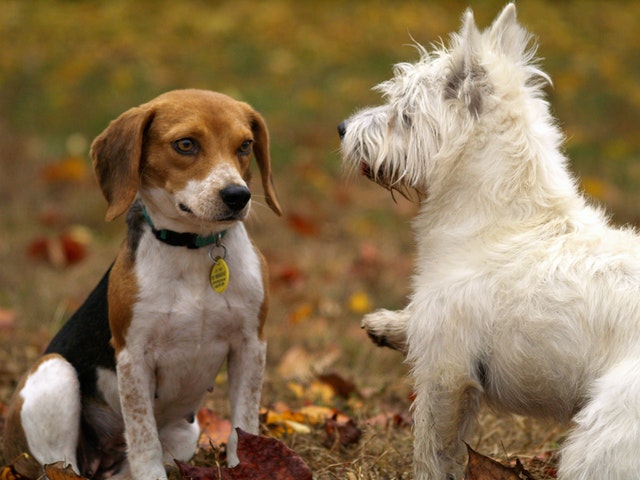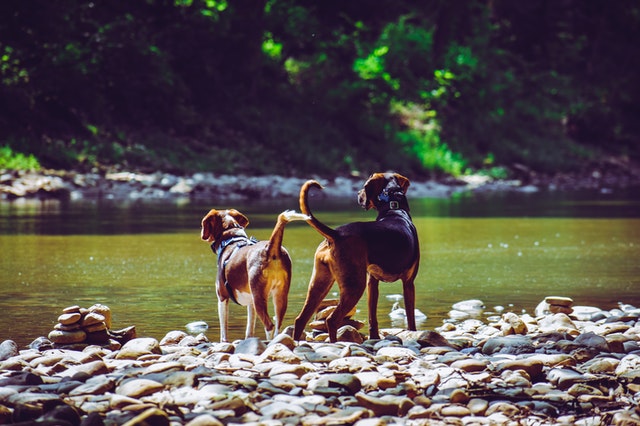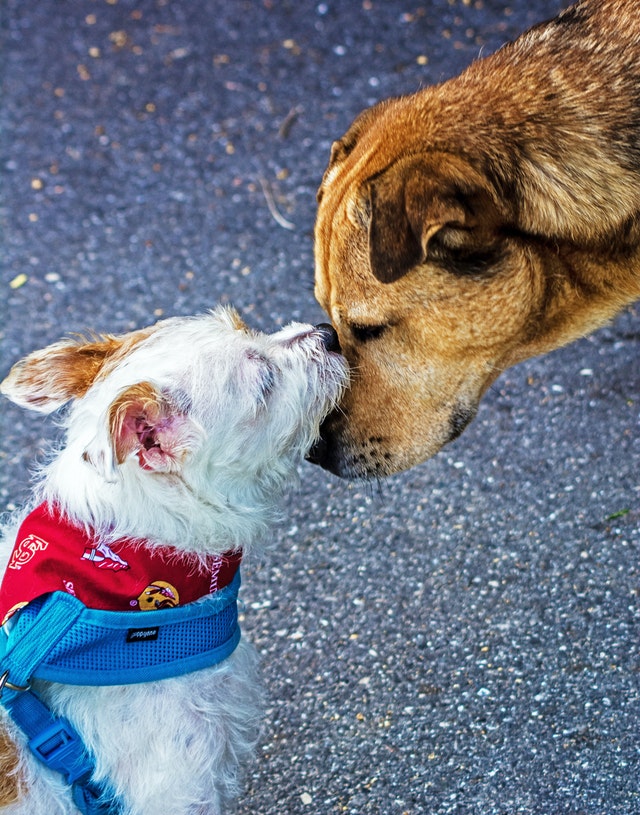Socialization in Dogs: Puppies are susceptible to emotional changes as they grow older, so providing them with a good learning base makes it easier to deal with any challenges they may encounter. Investing time early in a puppy’s life helps them grow into a confident and well-adjusted adult. While most dogs live well in a human world, few realize how resilient their pets must be to comply with the rules that domestic life imposes on them. Unfortunately, failure to follow these rules results in many adolescent and adult dogs ending up in shelters.

What humans want
We want our dogs to have good manners. May they be friendly with every person and dog they meet in and out of the house. It’s not realistic. Indeed, humans can choose who to greet and who to avoid, our dogs almost never have this luxury.
People don’t understand how obnoxious and threatening it is for some dogs to invade their bubble. We want our dogs to be adaptable. They have to be emotionally stable at all times (high expectations that even we ourselves cannot achieve). When they react negatively to friendly human interaction, they are often punished for displaying antisocial behavior. Dogs are not animals that are automatically born sociable towards humans.
They must, therefore, learn to be sociable with:
• its own species
• other animals
• but also to the rest of the world.
What is socialization in dogs?
Socialization in dogs is often an important criterion before buying the animal. But, you still have to know what we are talking about. It should not be confused with sociability either. Thus, the notion of sociability is to be understood as direct relations and forms of communication between individuals in a given social framework. The dog’s family group, the puppy school, the street are places of sociability.
The notion of socialization refers to all the mechanisms by which individuals learn about social relationships between men and assimilate the norms and values of a society or a community. We distinguish between primary socialization (or socialization of the puppy) and secondary socialization. Which is a lifelong process of learning and adapting individuals.
The most sensitive time for socialization is between four and twelve weeks. When fear arises, any negative experience can have negative consequences. They can thus remain for the entire life of the dog.
This is one reason why puppies from shelters or pet stores often have behavioral problems. Unfortunately, the common experience of these puppies is to live in a socially disadvantaged environment. However, this is the critical time for social experiments. So, when it changes its environment, the puppy experiences it as a trauma and can have destabilizing behaviors.

Can I overwhelm my puppy with too much social experience?
Positive socialization teaches important social skills. But crushing a puppy with too many social experiences too quickly can have the opposite effect. This can create a dog that hates being touched and is afraid of interaction. Therefore, it is important to be sensitive to a puppy’s limitations. Because sensitivity can make the difference between an adaptable dog in all situations and a dog that has trouble functioning in society. For example, you don’t take a puppy straight into the market with your fingers crossed that everything will be fine. Rather, we can bring it nearby while motivating it with play or treats. We can also put him in a dog bag or in our arms to make him feel safe while you are walking, preventing people from absolutely wanting to pet him without its consent.
What happens if my puppy is separated from its mother too soon?
Studies prove that deficiencies in early development can have adverse effects on dog behavior. Puppies are more emotionally balanced when they stay with their mothers until they are two months old. While puppies taken from their mothers too early are more likely to be fearful, hyperactive, even aggressive.
Indeed, early positive experiences with siblings allows the dog to feel safe. Thus, the brain develops normally thanks to the connections that develop between neurons in the brain.

Socialization with humans
It is very important for a puppy to experience human contact from birth in order to promote human attachment. It should facilitate the puppy’s ability to develop social attachments with people as it grows older.
When a puppy enters a new home, then the human should do everything possible to take advantage of these experiences and gradually expose the puppy to new situations, people, animals and environments, all in a positive way.
It also means that the animal should not be mistaken for a petting clinic. Many dogs end up disliking being touched because their calming signals have never been respected.
Socializing with other dogs and animals
To optimize a puppy’s social skills, good things need to happen when they meet other dogs.
Playgroups and “puppy schools” are a great way to teach puppies important social skills. For this to work, it is important to respect the temperament and the size of the puppy. Schools can make groups according to size and age. But, if you have a 5 month old Bernese Mountain Dog who is freaked out about other puppies, it is best to put him with smaller or less rowdy ones. It’s all about balance. Avoid puppy schools who mix all the puppies without intervening or leaving them tied up for the entire hour.
All interactions between puppies should be monitored to guard against negative experiences. All introductions to other dogs should be made in a calm manner so as not to disturb them. Better few positive encounters than many uncontrolled.

My dog is an adult and he lacks socialization
For adult dogs, depending on the origin of the lack of socialization, it may be more or less difficult to catch up. Sometimes this is even impossible if the dog is too emotional (the phobia for example).
However, we must try to make the life of this dog easier. Indeed, a dog that has lacked socialization will not feel safe. It is therefore best to get help, either through a behaviorist veterinarian or a canine behaviorist educator.
This person can guide you to understand your dog’s behavior. Plus, it will help you make an emotional and behavioral change. This will keep your dog feeling good about himself throughout his life.
Socialization in dogs and their trauma
Socialization in dogs can be done well, but nothing is guaranteed if the dog experiences trauma. But, the better the socialization, the less likely the dog to experience a negative experience such as trauma.
Building a strong social foundation is the greatest gift you can give to your puppy and ensures that your puppy is ready to take on any challenges that might come their way, with confidence and a desire to investigate and find out, rather than run away and hide. The more positive the lessons learned early in a puppy’s life, the more resilient and adaptable the puppy will be.



